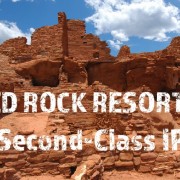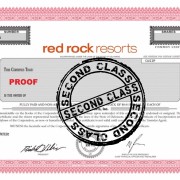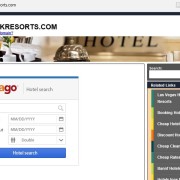How much is Station Casinos worth?
Last week, news broke that Fidelity, the mutual fund giant, had lowered its valuation of Snapchat Inc., the video messaging app company, by 25%. (See, for example, here, here, and here.)
The story got us thinking about how much Fidelity values Station Casinos LLC, of which it owns 8.7%. Fidelity’s valuation would provide a useful baseline for prospective investors in the Station Casinos IPO.
Here is what we found: a Fidelity fund’s filing implies that it valued Station Casinos’ equity at approximately $1.12 billion at the end of August.
- Station Casinos LLC’s last 10-K, filed on 3/10/15, shows that Fidelity affiliates owned a total of 26,613,550 of Station Holdco LLC units, which constituted 8.7% of ownership interest in the company. This means there were approximately 305,902,874 Holdco LLC units overall.
- The N-CSR filing by Fidelity Puritan Trust, filed on 10/28/15, shows that the Fidelity Puritan Fund valued 1,194,419 Station Holdco LLC units at $4.384 million on 8/31/15. This implies a valuation of $3.67 per Station Holdco LLC unit.
- Total value of Station Holdco LLC units is therefore: $3.67 * 305,902,874 = $1,122,787,062.
Station Holdco LLC holds 100% of the economic equity interest in Station Casinos LLC. Therefore, Fidelity’s filing implies that it valued Station Casinos’ equity at approximately $1.12 billion at the end of August.
This also means that Deutsche Bank’s indirectly-owned 25% stake in Station Casinos is worth about $280.7 million.
Will Station Casinos be able to raise enough money through the IPO to buy out Deutsche Bank, whose regulatory troubles could have implications for new investors in the highly regulated gaming business, and pay $460 million to insiders to buy the company’s exclusive management company? (We will take a closer look at the value of the management firm, Fertitta Entertainment LLC, in a coming report.)
See more of our analysis of the Red Rock Resorts/Station Casinos IPO:
- The insiders are cashing out at a high price compared to the company’s estimated equity.
- The tax receivable agreement could drain substantial amount of cash out of the company and affect free cash flow.
- The dual-class structure will make public investors second-class shareholders.
- The lack of disclosure regarding the regulatory problems of Deutsche Bank, a 25% current owner.
- Growth concerns in the company’s primary Las Vegas locals market and the lack of new development agreements in the tribal gaming market.










